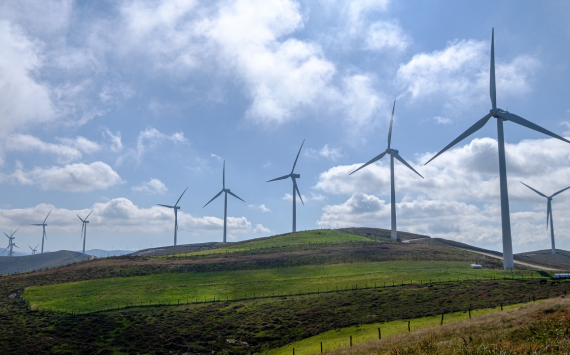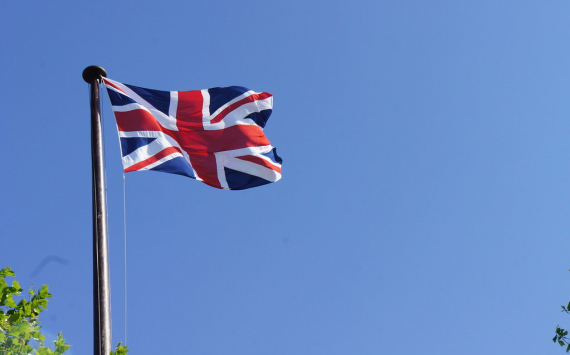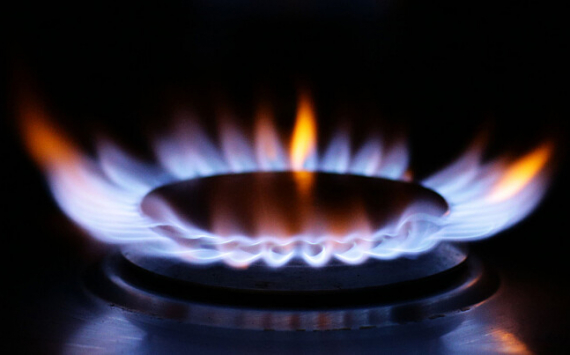Description
The Office of Gas and Electricity Markets (Ofgem), supporting the Gas and Electricity Markets Authority (GEMA), is the government regulator for the electricity and downstream natural gas markets in the United Kingdom. It was formed by the merger of the Office of Electricity Regulation (OFFER) and Office of Gas Supply (Ofgas).
Powers and duties[edit]
The authority's powers and duties are largely provided for in statute (such as the Gas Act 1986, the Electricity Act 1989, the Utilities Act 2000, the Competition Act 1998, the Enterprise Act 2002 and the Energy Act 2004,[3] the Energy Act 2008[4] and the Energy Act 2010[5]) as well as arising from directly effective European Union legislation. Duties and functions concerning gas are set out in the Gas Act and those relating to electricity are set out in the Electricity Act.
Its primary duty is to protect the interests of consumers, where possible by promoting competition.[6]
The Authority‘s main objective is to protect existing and future consumers' interests in relation to gas conveyed through pipes and electricity conveyed by distribution or transmission systems. Consumers' interests are their interests taken as a whole, including their interests in the reduction of greenhouse gases and in the security of the supply of gas and electricity to them.[7] Since 2010 the Authority has imposed nearly £100 million in fines and redress levies against energy suppliers, including a £12 million redress levy on E.ON in May 2014,[8] and a £1 million redress levy on British Gas in July 2014.[9]
Structure[edit]
The Gas and Electricity Markets Authority is governed by the Chairman Martin Cave, executive members as well as non-executive members.[10]
Jonathan Brearley was appointed Chief Executive of Ofgem from February 2020.[11]
Development of competition in the UK market[edit]
Background: Ofgas and OFFER[edit]
The liberalisation and privatisation of the energy markets in the United Kingdom began with the Margaret Thatcher Government in the 1980s (often called the Thatcher-Lawson agenda, due to the key role of Nigel Lawson in the Thatcher government cabinet). Aspects of the Ofgem model have been adopted by EU legislation.[12]
The privatisation of the gas and electricity supply industries was enacted by Gas Act 1986 and the Electricity Act 1989. Section 1 of the respective Acts created the roles of Director General of Gas Supply[13] and the Office of Gas Supply (Ofgas), and the Director General of Electricity Supply[14] and the Office of Electricity Regulation (OFFER). These were economic regulators independent of government, but accountable to Parliament. This arrangement separated their regulatory decisions from political control and which aimed to provide greater long term regulatory certainty and to encourage market entry and investment. The duties of the regulators were prescribed in Section 4 of Gas Act 1986[13] and Section 3 of the Electricity Act 1989.[14]
Starting in the 1990s, the supply of electricity and gas to end consumers in the UK has been unbundled from the rest of the industry. At the time of privatisation, British Gas and one regional public electricity supplier (PES) held a monopoly on supplying all domestic gas and electricity consumers respectively in the UK. Between 1996 and 1999, domestic energy consumers were gradually able to choose their supplier, and finally in May 1998, the domestic gas market was fully opened to competition, closely followed by the domestic electricity market in May 1999.[15]
Role of Ofgem[edit]
Before there was competition on domestic markets, the regulators set price controls fixing maximum price that the monopoly suppliers could charge domestic customers. These price controls remained in place when markets started to get liberalised, and were then gradually removed between 2000 and 2002. Ofgem’s decision to remove price controls was based on the assessment that competition was developing well at that time and that the Competition Act 1998, being effective since March 2000, would deter companies from the abuse of market power, and provide Ofgem with sufficient power to tackle any abuse. Moreover, consumer surveys showed good awareness of the ability to switch, high and rising switching rates away from the former monopoly supplies, and substantial and continuing falls in their market shares.[16]
In 2000, the Social Action Strategy review group was established and the Competition Act came into force. In 2003 the Wholesale Gas Probe was published. Two years after the removal of the last price controls, in April 2004, Ofgem published a major review of the state of competition in the domestic energy supply markets, concluding that supply competition had delivered substantial benefits for all consumers and that the markets were competitive, though not yet mature. In 2005 there was the EU Energy Sector Enquiry, as well as the Supply Licence Review. The Energy Supply Ombudsman was then established in 2006 and in 2008 the Energy Supply Probe was published.[17]
Against the background of unprecedented increases in world fuel prices leading to record increases in wholesale and retail gas and electricity prices so that a typical household's energy bills more than doubled since early 2004 Ofgem undertook the Energy Supply Probe. The numbers of consumers in debt to their energy suppliers, average debt levels and disconnection rates were all rising. These energy price rises came at a time when household budgets were under pressure from the rising cost of food, petrol, mortgages and other essentials. Vulnerable consumers and those in fuel poverty were particularly affected. The Energy Supply Probe published the findings on the operation of the UK retail energy markets and set out a package of measures to tackle the issues raised.[18]
CMA investigation[edit]
In June 2014 Ofgem announced a Competition and Markets Authority (CMA) investigation into the trading practices and competitiveness of the country's major energy companies: Centrica, SSE plc, RWE npower, E.ON, Scottish Power and EDF Energy. The investigation, which took two years, followed a referral by Ofgem to the competition regulator. "There is near-unanimous support for a referral and the CMA investigation offers an important opportunity to clear the air. This will help rebuild consumer trust and confidence in the energy market as well as provide the certainty investors have called for," Ofgem CEO Dermot Nolan in announcing the investigation.[19] In August 2016 Ofgem said that it would implement the CMA's recommendation that suppliers should be required to provide the details of customers who have been on expensive tariffs for three years or more to rival suppliers. Ofgem also said that it would impose an interim price cap on customers using pre-payment meters.[20]
Energy price caps[edit]
In October 2017, Prime Minister Theresa May announced her intention to introduce a cap on standard variable tariffs for energy customers, to be designed and implemented by Ofgem.[21]
The Domestic Gas and Electricity (Tariff Cap) Act 2018 received Royal Assent on 19 July 2018.[22] It stipulated that the price cap would be in place from the end of 2018 until 2020, when Ofgem would recommend whether the cap should remain on an annual basis up to 2023. Ofgem would also review the level of the cap at least every 6 months while it is in place.[22]
Ofgem refers to this as the "default tariff" price cap, to distinguish it from the "prepayment" price cap, its other energy price cap.[23]
Allegations of abuse of power relating to whistleblowers[edit]
In September 2018, the Guardian published a report claiming that two Ofgem experts had been independently threatened with criminal sanctions if they publicly revealed information. Ofgem allegedly invoked section 105 of the Utilities Act 2000, designed to protect national security, relating to concerns about energy meters and renewable heat incentive projects.[24]
Alternative Dispute Resolution (ADR)[edit]
Under the Alternative Dispute Resolution for Consumer Disputes Regulations 2015, if an energy company fails to resolve a complaint through their own customer service efforts they will be required to advise the consumer of an approved ADR body.
Ofgem is the Competent Authority responsible for approving ADR entities in the energy sector. Ofgem has only ever approved one ADR entity; Ombudsman Services.[25]
Key people[edit]
Directors General of Ofgas
- Sir James McKinnon, 1986–October 1993[26]
- Clare Spottiswoode CBE, October 1993–October 1998[27]
- Callum McCarthy, 1998–2002.[28] Following the retirement of Stephen Littlechild, Callum McCarthy assumed the combine role of Director General of Ofgas and Director General of OFFER.
Director General of OFFER
- Stephen Charles Littlechild (b.1943), September 1989 – 1998[29]
Chair and Chief Executive of Ofgem
- Callum McCarthy, 1998–October 2003. Following the end of tenure of Callum McCarthy the roles of Chair and Chief Executive Officer were split.
Chair of Ofgem
- Sir John Mogg (Baron Mogg), October 2003 – 2013[30]
- David Gray, 2013–September 2018[31]
- Martin Cave, September 2018–[32]
Chief Executive Officer of Ofgem
- Alistair Buchanan CBE, October 2003 – 2013
- Andrew Wright, interim CEO, June 2013–March 2014[33]
- Dermot Nolan, March 2014–February 2020[10]
- Jonathan Brearley, February 2020–[11]

























